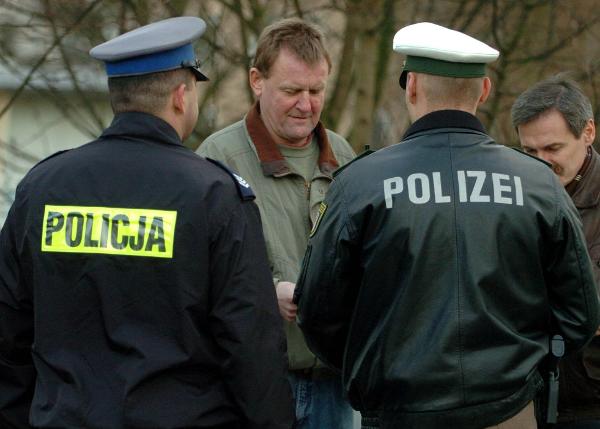Source

Source: (c) ZB-FUNKREGIO OST
With Poland’s accession to the EU on May 1, 2004, its borders with the Russian enclave of Kaliningrad, Belarus, and Ukraine became the easternmost boundaries of the EU. In the lead up to Poland’s accession, there were fears of possible increases in crime, especially smuggling, illegal immigration, and human trafficking. As a result, the accession countries (such as Poland) and the established EU states intensified their level of cooperation in the areas of policing and border protection. On the basis of new cooperation agreements, German and Polish policemen and border guards carried out approximately 12,000 joint patrols in the twelve months following the EU Eastern enlargement. Contrary to initial concerns, criminal offenses in the border region of Brandenburg along the rivers Oder and Neiße declined significantly. Between May and November 2004, 28,745 offenses were registered – 2,370 fewer than were registered for the same period in 2003. At the same time, the number of travelers (mostly shoppers) between Germany and Poland increased by 27 percent and a total of 52 million travelers were registered between Brandenburg and Poland. The photo shows a German police officer (right) and his Polish colleague (left) distributing informational handouts in German and Polish as part of a joint patrol at a border checkpoint.

Source: (c) ZB-FUNKREGIO OST